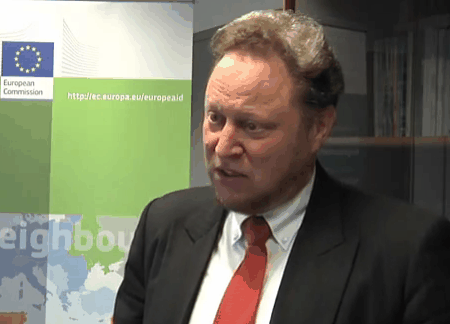The EU Neighbourhood Info Centre has released an 11-minute interview with Michael Köhler, Director for the Neighbourhood at EuropeAid, highlighting the EU’s priorities and funding commitments in the southern Mediterranean partner countries after the Arab Spring.
The video, produced by the Info Centre’s partner ANSA, tackles topics ranging from youth unemployment and support to SMEs, to civil society, freedom of expression and women’s rights.
In most of these countries where revolutionary events took place, there is a double challenge for the EU: not only organising the transition, but also providing support to address socio-economic challenges. The upheavals have caused budgetary problems and a destabilized macro-economic situation, as well as a need for building democracy, challenges that are at the core of the EU’s assistance to this region.
“Since the Arab Spring we set up a special Civil Society Facility which is worth €34 million for two-three years and this is going to continue in the future,” says Michael Köhler.“We have contributed to the European Endowment for Democracy, which… is much more flexible in its approach and we’ll be able to support also civil society organizations that are not yet formally registred, that are not yet formally recognized, and therefore really grass-roots…
“It is a mixture between making more financing available through all kinds of projects… and a real dialogue” with civil society, he said.
Michael Köhler stressed that the EU is no longer offering support only based on dialogue with governments, but is also consulting civil society across a range of sectors.
Support to the SME sector is another priority for the EU in Arab Spring countries, where 90 per cent of jobs currently come from private business. This is a big change for some of the countries in the region, which used to guarantee a job for all state diploma holders.
“We invest a lot in this kind of projects, but I think we need to present this in such a way that our partners in Arab countries understand that Europe stands by their side in creating job opportunities for these huge numbers of people that are looking for jobs in the private sector,” says Michael Köhler.
(Source: EU Neighbourhood Info Centre)





